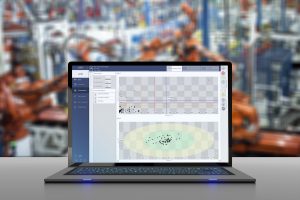
When large amounts of live data are being collected and processed the data also has to be rationalised in order to provide actionable knowledge. Process Analytical Technology (PAT) knowledge managers such as Optimal Industrial Technologies’ synTQ software suite are now providing a solution – with dynamic processing of big data they allow live decision making and precision control of complex processes with multiple variables.
Typically, return of investment (ROI) is faster on higher value products, hence the pharmaceutical and life science industries are leading the way with implementation, but many other process industries are now taking the technology on board from oil & gas to food and beverage production.
Crunching the numbers on complex multivariate processes
In a fully integrated SMART Factory, vast amounts of data regarding product quality and processes will be passing between devices at very high speed. While the latest industrial networking solutions such as gigabit frameworks are up to the task, the challenge is identifying which data sets to store, to then be assessed and rationalised into actionable knowledge. If such a vetting procedure is not enacted, SMART Factories could instead resemble data centres due to the memory required to store an exorbitant amount of data. Recently, PAT has enabled a paradigm shift in continuous and batch production processes across the manufacturing spectrum. Its ability to record critical quality attributes (CQAs) and critical process parameters (CPPs) in real-time allows plant operators to move from the traditional post production Quality by Testing (QbT) approach to an automated and more holistic Quality by Design (QbD) methodology. QbD essentially translates to responsive manufacturing as the PAT system itself allows real-time monitoring and adjustment of CQAs and CPPs. The result is greatly expediated production, but with full product quality assurance.
A PAT knowledge manager, such as synTQ, will guarantee quality control by assessing multivariate and univariate data from CQAs and CPPs to make predictions at every stage in the continuous or batch production process. CPPs can then be adjusted via closed loop control algorithms in real-time (without stopping production) to ensure a finished product reaches the required quality standards at the end of the line. It’s PAT’s total focus on providing actionable knowledge regarding a process and product quality which offers SMART Factory managers the option to run fully integrated production processes without using-up huge amounts of expensive memory either locally or in the cloud.
Instead of storing all the data from every single device along a production line, operators can utilise a PAT knowledge manager to instead filter information to only show key data affecting CQAs and CPPs. This ensures plant operators can be instantly notified of actionable information, without having to sift through large amounts of data. Historical data can then be profiled by experts, this greatly helping with the development of process mechanistic knowledge that can then be fed back into the process for further improvements.
Proactive view of the future
By utilising the prediction engine inherent to PAT knowledge managers such as synTQ, plant operators can move from reactionary to proactive practices, with a production line that is flexible enough to accommodate adjustments without incurring downtime. By using specific knowledge regarding CQAs and CPPs, delivered by prediction engines, plant operators have access to a powerful tool in terms of enacting preventative maintenance and providing product quality assurance.
Several features included in the current synTQ v5 release further aid with this. A real-time multivariate statistical process control (MSPC) viewer and user-configurable control charts can be utilised and customised to detect when a CPP is moving beyond the predefined operating envelope, so the PAT system can carry out adjustments on the fly without operator input.
Regulatory compliance is a given. For example, synTQ is employed by over half of the top ten global pharmaceutical manufacturers, with a QbD and PAT approach being strongly supported by the regulatory bodies of many countries. If PAT can be applied to the complexity of producing solid dose drugs, it is certainly capable of contributing to most multifaceted continuous production demands across the manufacturing spectrum.
Utilising PAT offers plant operators the opportunity to unify knowledge gained from the large amounts of information inherent in big data. Not only does this centralise all data streams into a single framework, it also allows for key knowledge to be passed onto operators or acted upon by the PAT system alone. Instead of big data becoming a behemoth, information is streamlined and delivered in a manner optimised to the needs of operators. SMART Factories are no longer about capability, as with every growing concept, optimisation is the key proviso – a benefit PAT delivers in spades.

Recent Comments